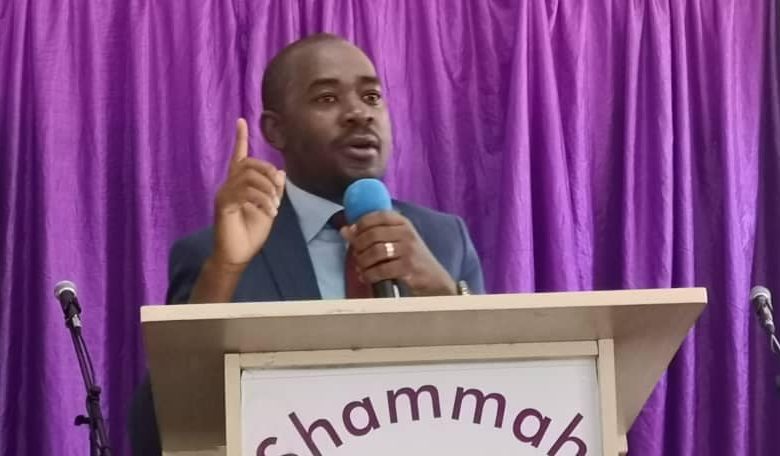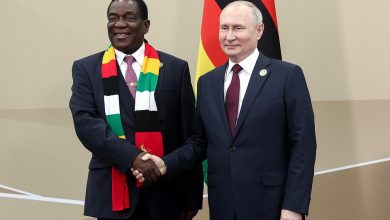Divine Inspiration or Strategic Deception? Chamisa’s New Church-Based Movement Raises Questions

In an intriguing shift, Nelson Chamisa, former leader of the Citizens Coalition for Change (CCC), is positioning himself within a church-based movement that he claims is divinely inspired. The announcement, made recently at a memorial for his uncle, has garnered both support and skepticism, with Chamisa presenting himself as a leader with “clean hands” amid ongoing political turmoil. However, critics argue that his religious rhetoric may be more of a strategic play than genuine inspiration, masking political motives with spiritual language.
Framing Political Ambitions as Divine Will
Chamisa’s recent messages intertwine political and spiritual narratives, referencing biblical figures like Joshua and promising morally upright leadership for Zimbabwe. This tactic has raised concerns that he is leveraging religion to cultivate loyalty among followers while strategically evading scrutiny. His history with “strategic ambiguity”—where vague and often contradictory statements aim to leave multiple interpretations open—continues in this religious narrative, potentially obfuscating his true political intentions. Some analysts see this as a means for Chamisa to maintain control and loyalty within his political base by positioning himself as a prophet-like figure without addressing core issues within the CCC and Zimbabwe’s political landscape.
Financial Allegations and Claims of Ethical Leadership
Critics question Chamisa’s commitment to ethical governance, as his leadership has faced allegations of financial improprieties within the CCC, particularly regarding funds earmarked for election campaigns. According to reports, some within his own party allege that millions of dollars intended for the 2018 and 2023 elections were misappropriated, an issue that has yet to see a thorough investigation or accountability. This alleged mishandling of funds casts doubt on his current appeals to religious authority and transparency. Many believe that by presenting his political ambitions as divinely ordained, he is attempting to sidestep these unresolved controversies.
Concerns of Democratic Deficit in the New Movement
Chamisa’s history with the CCC has sparked criticism over his leadership style, which some argue leans towards centralization and lacks democratic transparency. Analysts have noted that his current messaging about a church-based movement appears to mirror his earlier control over CCC, where key decisions were reportedly made unilaterally. Observers warn that if this movement follows the same path, it may merely replicate the structural issues seen within CCC rather than offering a genuine alternative in Zimbabwe’s political sphere.
Future Implications for Zimbabwe’s Opposition Politics
While Chamisa’s new direction has stirred enthusiasm among supporters, the broader Zimbabwean political landscape remains cautious. Many wonder if this religious framing will be effective or sustainable given the hurdles he has faced within the CCC and public scrutiny. The shift also raises questions about the efficacy of religious narratives in influencing Zimbabwean politics and whether Chamisa can offer a viable opposition to the current government without addressing past financial and structural issues.




